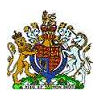Debate About Impeding Traffic
- Read more about Debate About Impeding Traffic
- 9 comments
- Log in to post comments
 I've probably said this before, but when I applied the same tolerance under the speed limit as I did for those driving over the speed limit and factored in the advisory signs for speed I seldom found a driver going slower. Having sat and considered for a minute, I cannot recall writing a ticket for impeding traffic during my enforcement career.
I've probably said this before, but when I applied the same tolerance under the speed limit as I did for those driving over the speed limit and factored in the advisory signs for speed I seldom found a driver going slower. Having sat and considered for a minute, I cannot recall writing a ticket for impeding traffic during my enforcement career.

 A recent survey by
A recent survey by  A sizeable proportion of British Columbians would like to see changes to municipal speed limits, a new
A sizeable proportion of British Columbians would like to see changes to municipal speed limits, a new  Tejveer Parmar successfully used the defence of necessity to defend himself against a charge of speeding. He was initially convicted in traffic court but appealed the conviction. The justice agreed, allowed the appeal, quashed the ticket conviction and acquitted him of speeding.
Tejveer Parmar successfully used the defence of necessity to defend himself against a charge of speeding. He was initially convicted in traffic court but appealed the conviction. The justice agreed, allowed the appeal, quashed the ticket conviction and acquitted him of speeding.
 On the 14th of November, 2015 at about 9:00 am, Ken Chung was operating an Audi northbound on Oak Street approaching West 41st Avenue in Vancouver. Evidence suggested that his speed was about 140 km/h in the 50 km/h zone.
On the 14th of November, 2015 at about 9:00 am, Ken Chung was operating an Audi northbound on Oak Street approaching West 41st Avenue in Vancouver. Evidence suggested that his speed was about 140 km/h in the 50 km/h zone. Q: I was issued two tickets in June of 2018, one of them for excessive speed. I was and still am an N driver. It occurred at 142 Street and 72nd Avenue in Surrey in a speed trap. I acknowledge the fact that I was speeding but did not reach the over 40km/h threshold. I have evidence from my iPhone 8 Plus and the Life 360 app that shows the speed I reached was 3km/h fewer than 40km/h over the limit. Any advice is greatly appreciated.
Q: I was issued two tickets in June of 2018, one of them for excessive speed. I was and still am an N driver. It occurred at 142 Street and 72nd Avenue in Surrey in a speed trap. I acknowledge the fact that I was speeding but did not reach the over 40km/h threshold. I have evidence from my iPhone 8 Plus and the Life 360 app that shows the speed I reached was 3km/h fewer than 40km/h over the limit. Any advice is greatly appreciated.